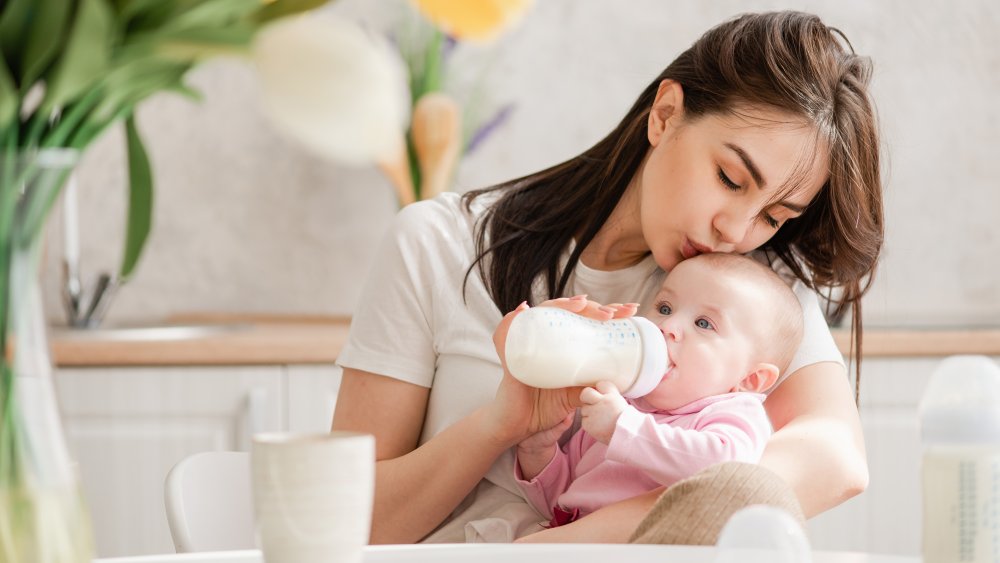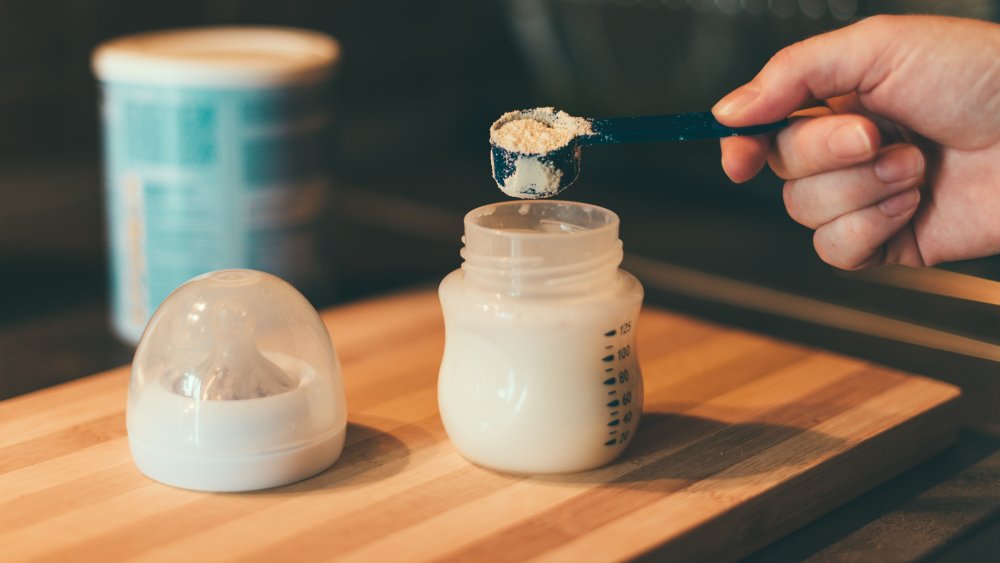Babies Are Getting An Alarming Amount Of Microplastics From Bottles
When taking care of a baby, you do everything possible to ensure good health. New research has shown there may be one potential hazard that you've probably never even considered, and it happens during bottle feeding.
The problem comes from microplastics — microscopic particles that are shed from a plastic bottle's interior — during the process of mixing and preparing formula. It's on the scope of millions of particles, about 1.5 million per day, according to NPR, and perhaps trillions of even smaller fragments known as nanoparticles. Every time an infant eats using a plastic bottle, they are ingesting these tiny bits of plastic.
The study was conducted by researchers at Trinity College Dublin and released in the journal Nature Food. They tested 10 plastic baby bottles over a three-week period by mixing and preparing formula at differing temperatures using methods recommended by the World Health Organization. Results consistently showed that all preparation measures using plastic bottles released micro- and nanoparticles.
The release of plastics is due to two things that are still important to the process of mixing formula — heat and shaking. Plastic bottles are made from polypropylene which contains layers of a hard crystalline surface and an amorphous surface. "The amorphous material calves off very easily," study co-author John Boland told Wired. Heat softens the surface and shaking exacerbates the release.
What should parents do?
The study's authors are careful to note that they don't want to alarm parents. Right now, there is no evidence that microplastics pose a threat to the human body, according to NPR. And we all consume them; they're in drinking water as well as our favorite fish, thanks to the vast amounts of plastic garbage that end up in the ocean.
Rather, Boland said that this research should be a jumping-off point. "I think that the health implication is a big question mark... It really suggests that now is the time to begin looking at these studies much more carefully."
The research team offers a set of guidelines for preparing infant formula that minimizes the transfer of microplastic. Sterilize bottles by preparing sterilized water in a non-plastic kettle or cooker, then rinse the bottle using room temperature sterilized water at least three times, according to Science Daily.
To prepare formula, use a non-plastic kettle or cooker to heat water to at least 158 degrees Fahrenheit (70 degrees Celsius). Mix the formula in a non-plastic container and allow it to cool to room temperature. Then transfer the prepared formula into the plastic feeding bottle.

